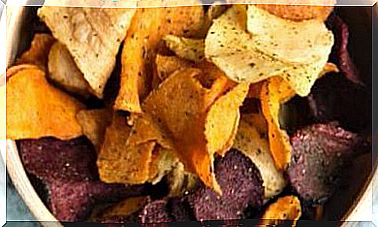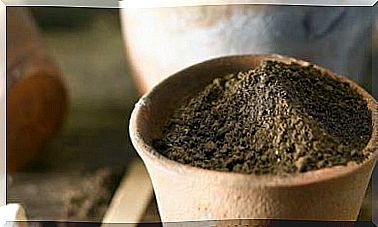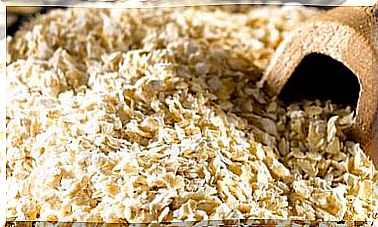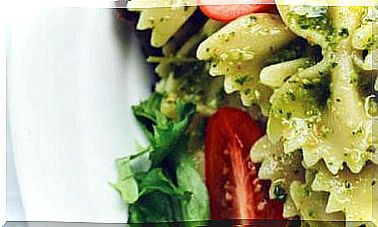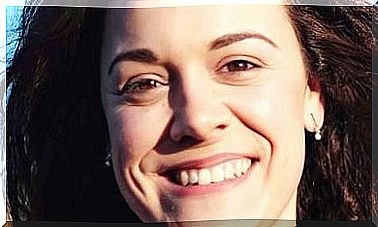“Vegetarianism In Children Is Compatible With Good Health”
Vegetarianism and veganism in children is more and more common but doubts continue to arise in this regard. Some of the most reputable dieticians-nutritionists and pediatricians in Spain have written the book “Vegetarian Food in Childhood” to give the definitive answers to all veggie-doubts.

The idea of feeding a child on a plant-based diet has fans and sympathizers, but it also generates skepticism and rejection in certain people.
To resolve the doubts that may arise regarding vegetarianism and veganism in childhood, some of the country’s most reputable dietitians-nutritionists and pediatricians (Julio Basulto, Maria Blanquer, Pepe Serrano and Maria Manera), have presented the book Vegetarian food in the childhood. The definitive answers to all your veggie-doubts. (DEBOLS! LLO). The book is intended to be a reference manual on how to feed children a healthy plant-based diet, with all the variations and circumstances that surround this way of eating.
The different pediatricians who have participated in this book emphasize that, taking into account the enormous rates of overweight and obesity that occur in children under 5 years of age in our country, we must not forget that the healthiest eating patterns are characterized by a diet based especially on fresh, unprocessed plant-based foods (fruits, vegetables, legumes, bread, rice, pasta, corn, millet, oats, nuts, virgin olive oil …). Based on this, they offer us information to clear all the doubts that revolve around the plant-based diet in childhood.
Vegetarian or vegan diet in children: a healthy option
Pepe Serrano, co-author of the book Vegetarian food based on childhood. The definitive answers to all your veggie-doubts is a pediatrician specializing in child nutrition, a benchmark of the Childhood and Mediterranean Diet research group. He has focused part of his interest on issues of diet and childhood obesity.
–What would you say to those who discard the vegetable-based diet in children for fear that they suffer from deficiencies?
–In any eating pattern it is important to be vigilant both against possible deficiencies and excesses that are too frequent. It is important to make this point since sometimes we put the spotlight on an unlikely deficiency in small vegetarians, which should not exist if there is minimal planning, without realizing that 40% of the child population, the vast majority omnivorous , is overweight or obese, a product, undoubtedly of excesses, among which I would highlight the ultra-processed products.
– What should we consider before making this decision?
It is very important to take into account the age of the child to which we refer. Babies who start a vegetarian diet usually do so because their families already practice this type of diet. Many of these families already have plenty of knowledge in this regard, but it never hurts that with the arrival of a new family member they are advised by a professional.
– Can a child’s diet be based on vegetables from birth?
–Vegetarian nutrition is perfectly compatible with a satisfactory state of health at any time of life, which, without a doubt, includes babies. Moreover, it is so from the precise moment of conception, since it has proven to be a safe and perfectly adequate diet for both the pregnant woman and the developing fetus. Regarding the newborn, let’s not lose sight of the fact that until six months of age the only food that should be taken is breast milk (or formula if breastfeeding is not possible) and that, from there, the inclusion of new Food in the form of complementary feeding in our environment begins with vegetables in the vast majority of babies.
Taking stock of the intake of these vegetables to adapt them to the needs of the child, something that should not be complicated for any dietician or pediatric professional, is what will allow us to put aside the fear of hypothetical complications.
–And if the decision is made by the child?
In the case of the elderly, when they are the ones who make the decision not to eat animals, I think that the main aspect to take into account is to respect their decision. From there everything will be much easier.
– Is there any type of vegetarian diet not recommended in childhood?
-Yes, there are some diets derived from vegetarian that are not recommended in children. We would be talking about the raw vegan diet , the frugivore or the macrobiotic that, beyond a diet, is a lifestyle. None of them would be suitable for pediatric age due to the risks that their complex planning could entail. In the book, Vegetarian Eating for Children, we expand on these justifications in greater detail.
Plant-based diet for kids: where to start
Once the decision has been made to feed our children based on a vegetarian or vegan diet, doubts begin to arise. Maria Blanquer, Master in Public Health and Diploma in Human Nutrition and Dietetics, answers the most common ones in the new book on plant-based diets for children.
– How should the first meals be in a vegetarian child?
From approximately 6 months of age, the period called complementary feeding begins, in which we can offer foods other than breast milk (or formula), keeping milk as the main source of energy and calories until one year of age . From one year on, breast milk continues to provide many benefits.
Complementary feeding consists of offering healthy foods (fresh or minimally processed, avoiding, in all cases, adding salt, sugar or artificial sweeteners), with the appropriate textures, either with the baby-led weaning method (foods that can be eaten with their hands and chew or crush) and / or pureed or crushed foods, and respecting their feeling of hunger: babies know how much to eat.
Your ability and your tastes should determine the choice of both the method and the texture or order of the food that we offer you. Not forgetting that vegetarian babies should take vitamin B12 supplements on a regular basis once the complementary feeding period has started.
–Are plant-based meats recommended in a vegetarian children’s diet?
–Although the nutritional composition and presentation of plant-based meats is highly variable, in general, they are a good source of protein, vitamins and minerals. However, they are not products whose consumption should be encouraged, especially in a children’s diet, due to their high salt content and because the fats used are not always of the best quality.
They are not an example of healthy foods –some are ultra-processed–, but they are suitable for occasional consumption because they have a lower environmental impact than their counterparts of animal origin, and because they broaden the range of gastronomic possibilities in terms of vegetable protein. .
–What is the best way to offer protein in a vegetarian diet for children?
–To guarantee the protein intake in vegetarian children, when incorporating protein foods, such as meat and fish, well-cooked legumes and their derivatives (tofu, tempeh, textured soy, flour of chickpeas, etc.), seitan (boiled gluten dough), egg (in vegetarian ovo and vegetarian dairy ovo diet), unsweetened fermented soy drink (soy “yogurt”), crushed or creamed nuts and without salt , among others.
Later, around 9-10 months, and in the case of a vegetarian dairy or vergetarian ovo dairy diet, they can begin to offer small amounts of unsweetened yogurt and fresh or soft cheese without salt.
The protein needs of vegetarian and vegan children are covered when their diet includes mainly legumes, and also nuts.
Cereals (pasta, rice, etc.), to a lesser degree, contribute to meeting these requirements. It is also important to avoid a high consumption of unhealthy foods, and to ensure that caloric requirements are met. That is, they cover their protein needs if they eat healthy food in sufficient quantity.
If you have been interested in this topic …
You can buy the book Vegetarian Food in Childhood. The definitive answers to all your veggie-doubts. (DEBOLS! LLO) here.


